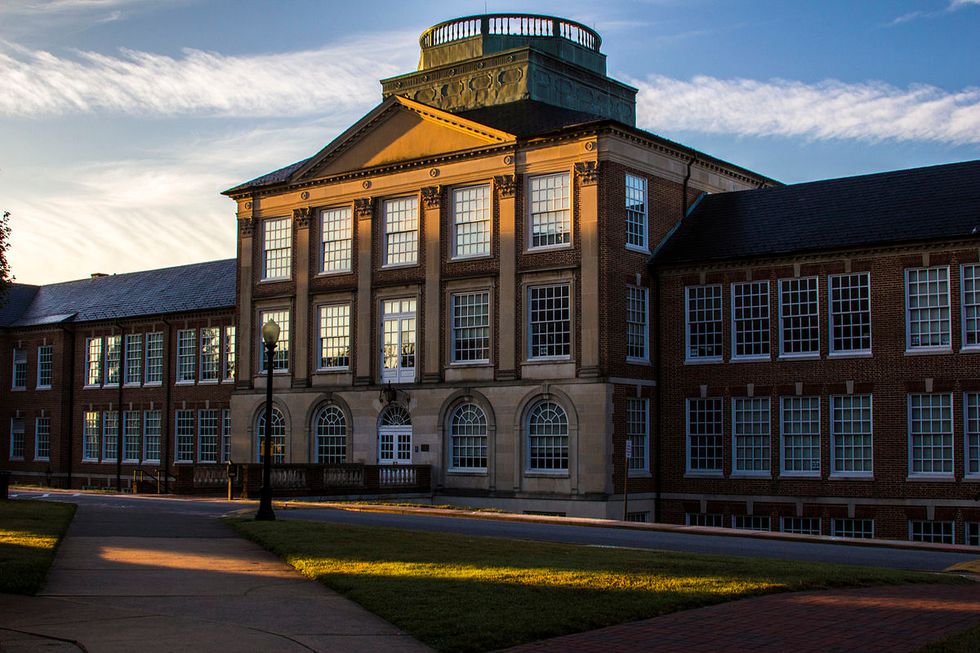He was well-liked by his peers, and this is perhaps the best way to recommend his character to a stranger. He was also very good-looking, though unlike some other heroes, his person did not generally amount to these two traits.
He was well-liked and mostly considered to be handsome, and to Joe’s understanding, this made him a hero. As any young, vain reader would, he identified with the men he wanted to be; he was John Yossarian, Atticus Finch, Joe Kavalier, Captain Frederick Wentworth, Jay Gatsby. And, like most high school readers, Joe felt like he could measure up.
Adolescent uneasiness about the future and an insatiable longing for adventure converged into what would be known in most heroes as a “spark;” a brand of reckless confidence that convinced Joe and, for the most part, the people around him, that he could do anything. What really gave Joe the promise of a hero was the way that he believed he was one.
By his junior year of high school, Joe had nearly mastered the important aspects of being a hero. He was athletic and muscular from running cross country and track. He had chestnut hair that was just long enough to be brushed aside when he scratched his head, which he did unconsciously when he was thinking. He had light, golden-brown eyes that added an element of sadness to his usual expression of indifference.
Such an expression was another crucial part of being a hero: heroes are tough, suave, and always level-headed, excepting situations of extreme passion, warranted of course by threats of evil. At a relatively nice school in a relatively small town, such threats were rare, so Joe’s calm and masculine demeanor was well-cultivated.
Secondly, as Joe understood it, heroes were brave. From middle school, he had built a reputation by never turning down a dare, particularly if he could be bribed with a few dollars. He ate and drank strange lunchtime experiments, licked toilet seats, streaked across baseball fields, hitchhiked, crashed college parties, and could be assumed to be one of the masterminds, if not the mastermind, behind every prank pulled at his high school since his freshman year.
He became a Fred Weasley to his peers, aided by his best friend James (playing the part of George Weasley), who spun the stories of Joe’s bravery into legends. Such stunts made him a subject of interest and popularity within his own class, and when he agreed to a boxing match against a NCAA D1 football player after prom in April, he was briefly idolized across the school.
Joe was the kind of hero, though, that concerned himself less with the approval of others than a wholesome approval of himself. He instigated the fight partly because he had been drunk, but also because there happened to be boxing gloves lying around, and also because he thought it would be fun.
One day, not too long after the boxing match, Joe had the good fortune to know that his third period English class would be particularly boring. He promptly left the school building at the sound of the first bell, walked confidently past the cafeteria, and set off down Reynolda road.
It was spring, and the weather was warm. By the time Joe reached the field behind the garden, he was sweating. The long grass was partially yellowed, and soft, short green sprouts were starting to show. He kicked off his flip flops and stood in the dirt.
Not being one much for immobility, though, he soon began to walk. He was off the path, heading out to where the field touched the woods. He had gotten about halfway there when he noticed that something in the grass to his left was also headed in that direction. He stopped; whatever else was moving did not. He turned and began to follow it. He had a somewhat larger stride than whatever he was chasing, and to his delight, he soon realized that his target had been a small, and rather thin, black kitten.
Enamored with his new friend, Joe crouched and beckoned.
“Come here buddy,” he whispered, rustling his hand in the grass.
The kitten turned, was frightened, and dashed away. Joe dashed after him. They ran to the edge of the woods, and the kitten darted into the safe foliage of the nearest bush. Unwilling to lose his new friend so soon, he crept off to the side. After several minutes of waiting, he hazarded a peak into the bush.
The next day at school, Emma was sitting next to Joe in newspaper class. They were each editing a page on the outdated computers that circled one half of the room.
“Hey, do you want a kitten?” Joe asked her, out of nowhere.
“What are you talking about?” She said, laughing.
“Do you want a kitten?” He repeated.
“You mean, like, now?” She asked.
“No, they’re at my house. I found them on Monday.”
“How many do you have?” She asked.
“Spanky, Fanky, Marquan, Finnigan, Franchise, Squirrel, and Blake,” he said, counting them on his fingers as he listed them. “And Lily, but she’s my cat.”
“Um, well,” Emma said, continuing to laugh, “I don’t think my dogs really like cats. But I would like to see them if I can just play with them!”
“Yeah, that’s cool,” Joe said. “But Franchise is really scared of people. I have to sleep on the floor next to her so she won’t be afraid.”
“Aw, well, that’s very sweet of you, Joe,” she said.


















